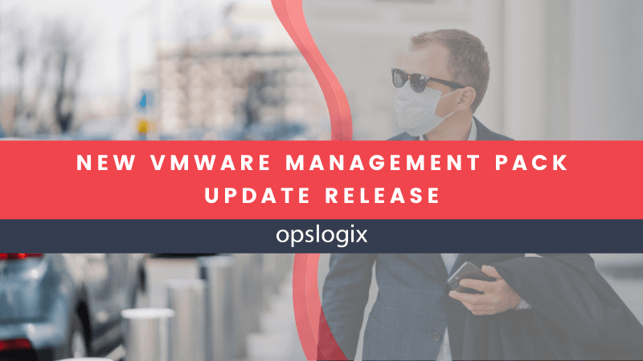VMware Management Pack Update Release (20.9.2060.0)
by Jonas Lenntun, on Sep 29, 2020 2:00:00 PM

Our fourth update release for 2020 of OpsLogix VMware Management Pack for Operations Manager is now released. Improvements includes exciting features such as Host Ram Disk monitoring and Discovery of Tagging information for Hosts and Virtual machines.
Important: In our previous release we also simplified the configuration and licensing experience and moved everything under the administration pane. This will require you to remove the old Licensing UI Management Packs before upgrading from older versions then 20.5.1899.0.
And once again, we fully support the new version of VMware vSphere 7 and vSAN.
The new version (20.9.2060.0) is available for download in our customer download area. If you are upgrading, please read the upgrade manual for a complete step-by-step guide to ensure a trouble free experience.
Discovery of Host/VM Tagging
In many organizations, there are a lot of applications running distributed over many machines. To keep track of what applications are running in which machines, you can use the builtin VMware tagging service.
By labeling the ESX Hosts or Virtual machines with the corresponding application name, you now can identify the application groups.
So when a VM is reporting an issue, you can create an alert (in SCOM or a connected service desk application), including the discovered VMware application tag name.
You can also use the tags by creating dynamic SCOM groups based on the discovered VMware tag. For example, a Gold, bronze, or silver group. Now you know, when a host or virtual machine is a member of one of these groups to prioritize alerts or apply a custom override.
Monitor local host RAM disk storage
On an ESX host operations system, there are many hardware vendor drivers installed. These drivers make usage of the OS file system to write data, for example, log records.
Not always, these drivers are handling the clean of the log files correctly. This can cause a full file system, an in-stable OS and unpredictable host. By monitoring the RAM disks, you can proactively tackle these situations.
Important
If you upgrade from a older version then 20.5.1899.0, please review the following.
- We refactored and moved the Licensing console to the Administration part in the SCOM console for a better end-user experience.
- Before importing this release, please remove the "OpsLogix IMP - Licensing UI for OpsMgr 2012" management pack.
- Before importing this release, please remove the "OpsLogix IMP - VMware Full Monitoring Groups" management pack.
- After importing you will have to re-assign the hosts licenses using the console OpsLogix VMware MP -> assign tab
- We changed the version numbering to [Year].[Month].[BuildNr].[PatchNr] to get better release insights
After removing the Management Packs above, you can continue to import this release including the new versions of the previously removed MPs.
New
- Host Ram Disk monitoring
- Discovery of Tagging information for Hosts and Virtual machines
- 'Learn More' link to the license assignment tab
Changed
- In some scenarios the warning state of the datastore GB and PCT monitor was incorrect
- Some typos in the alert descriptions
Note
The OpsLogix VMware Management Pack requires Microsoft System Center Operations Manager 2012 SP1, 2012 R2, 2016, 180x or 2019.
The OpsLogix VMware Management Pack makes use of Microsoft .NET Framework 4.5. It is required that Microsoft .NET Framework 4.5 is installed on all SCOM Management Server and Gateway Servers that are resource pool members in the resource pool used for VMware monitoring.
The Management Pack can be upgraded from of VMware Management Pack version V1.3.8.x


